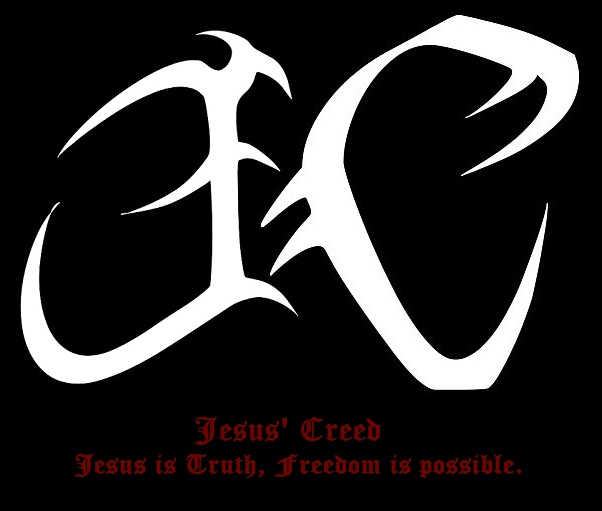Creeds and Freedom
By Anthony Casperson
1-14-17
During the brief hiatus I took a few weeks ago, I went to go see the Assassin’s Creed movie. The battle between the Assassins and the Templars came off of video game consoles to the big screen. It brought the titular Assassin’s Creed to the non-gaming audience.
The Creed? “Nothing is true, everything is permitted.” It’s one part of playing the games that has made me question the goodness of the Assassins. (Playing Assassin’s Creed Rogue didn’t help either, but that’s another story.)
Often, the extent of this creed’s meaning is glossed over to merely say that the Assassins seek freedom and the Templars seek control. And this is very much the direction that the film takes as it doesn’t have the time to elaborate on the creed like the video game series does.
So what’s wrong with freedom? Nothing. You can look at a previous blog (Time Travel and Mystery) and see that I believe that human freewill is an active part of God’s sovereign plan for the world. But what I do have a problem with is that, in the Assassin’s Creed series, freedom comes at the cost of there being a universal, absolute Truth.
The creed for the game series was “borrowed” from a 1938 novel by Vladimir Bartol. (Actually, much of the very first game found inspiration from the novel, which had just been translated into English 3 years before the game came out in 2007.) In the novel, the creed of the Hashshashin (the Assassins) was “Nothing is an absolute reality, everything is permitted.” And the Arabic used in the first game is more properly translated in this manner than game’s translation of “Nothing is true, everything is permitted.”
This understanding of the game’s creed then gives the idea that “freedom” is lost when there are absolutes. When there is a truth that governs our lives, we cannot be truly free. And this thought of “freedom” is prevalent in western society. But is it true? Does freedom come from a creed-less creed?
Jesus spoke about freedom and truth in John 8. He said that if we remain in his word, if we remain faithful to his teachings, we will know the truth. And the truth will set us free. It’s by keeping the Truth close to our hearts that allows us to be free according to Jesus.
In that same passage, the Pharisees question Jesus’ statement. They ask why they would need to be freed because they thought that their position as children of Abraham guaranteed them freedom. Those who seek freedom in creeds beyond the Truth of Jesus will be surprised by the rattling of chains as the truth of their slavery is revealed to them.
Jesus says that everyone who sins, everyone who does the things that God doesn’t permit his people to do, is a slave to sin. That’s everyone, but Jesus. We are all slaves to sin. We are all not free.
Freedom comes only to those who are set free by the Son. It’s only through Jesus that we can ever hope to be free. And it will be an absolute freedom. This is the Truth that Jesus proclaims. If we cling to the truth, we will be free. If we permit the Truth to work in us, freedom will be given.
Many people look at those who follow Jesus and view them as people who are bound to follow certain rules and are blind to the world around them. But that’s a wrongful view of being a follower of Jesus.
It’s not a set of rules, but a relationship of love that frees us from the traps of slavery. The traps that our addictions, bad habits, and ungodly actions have set as they jump on us from the rooftops and jump out of hay bales to assassinate us.
The Truth of the bible doesn’t call us into some lifeless existence. It calls us to experience a life of freedom that can only be found in Jesus.
Jesus is Truth, freedom is possible.
By Anthony Casperson
1-14-17
During the brief hiatus I took a few weeks ago, I went to go see the Assassin’s Creed movie. The battle between the Assassins and the Templars came off of video game consoles to the big screen. It brought the titular Assassin’s Creed to the non-gaming audience.
The Creed? “Nothing is true, everything is permitted.” It’s one part of playing the games that has made me question the goodness of the Assassins. (Playing Assassin’s Creed Rogue didn’t help either, but that’s another story.)
Often, the extent of this creed’s meaning is glossed over to merely say that the Assassins seek freedom and the Templars seek control. And this is very much the direction that the film takes as it doesn’t have the time to elaborate on the creed like the video game series does.
So what’s wrong with freedom? Nothing. You can look at a previous blog (Time Travel and Mystery) and see that I believe that human freewill is an active part of God’s sovereign plan for the world. But what I do have a problem with is that, in the Assassin’s Creed series, freedom comes at the cost of there being a universal, absolute Truth.
The creed for the game series was “borrowed” from a 1938 novel by Vladimir Bartol. (Actually, much of the very first game found inspiration from the novel, which had just been translated into English 3 years before the game came out in 2007.) In the novel, the creed of the Hashshashin (the Assassins) was “Nothing is an absolute reality, everything is permitted.” And the Arabic used in the first game is more properly translated in this manner than game’s translation of “Nothing is true, everything is permitted.”
This understanding of the game’s creed then gives the idea that “freedom” is lost when there are absolutes. When there is a truth that governs our lives, we cannot be truly free. And this thought of “freedom” is prevalent in western society. But is it true? Does freedom come from a creed-less creed?
Jesus spoke about freedom and truth in John 8. He said that if we remain in his word, if we remain faithful to his teachings, we will know the truth. And the truth will set us free. It’s by keeping the Truth close to our hearts that allows us to be free according to Jesus.
In that same passage, the Pharisees question Jesus’ statement. They ask why they would need to be freed because they thought that their position as children of Abraham guaranteed them freedom. Those who seek freedom in creeds beyond the Truth of Jesus will be surprised by the rattling of chains as the truth of their slavery is revealed to them.
Jesus says that everyone who sins, everyone who does the things that God doesn’t permit his people to do, is a slave to sin. That’s everyone, but Jesus. We are all slaves to sin. We are all not free.
Freedom comes only to those who are set free by the Son. It’s only through Jesus that we can ever hope to be free. And it will be an absolute freedom. This is the Truth that Jesus proclaims. If we cling to the truth, we will be free. If we permit the Truth to work in us, freedom will be given.
Many people look at those who follow Jesus and view them as people who are bound to follow certain rules and are blind to the world around them. But that’s a wrongful view of being a follower of Jesus.
It’s not a set of rules, but a relationship of love that frees us from the traps of slavery. The traps that our addictions, bad habits, and ungodly actions have set as they jump on us from the rooftops and jump out of hay bales to assassinate us.
The Truth of the bible doesn’t call us into some lifeless existence. It calls us to experience a life of freedom that can only be found in Jesus.
Jesus is Truth, freedom is possible.





